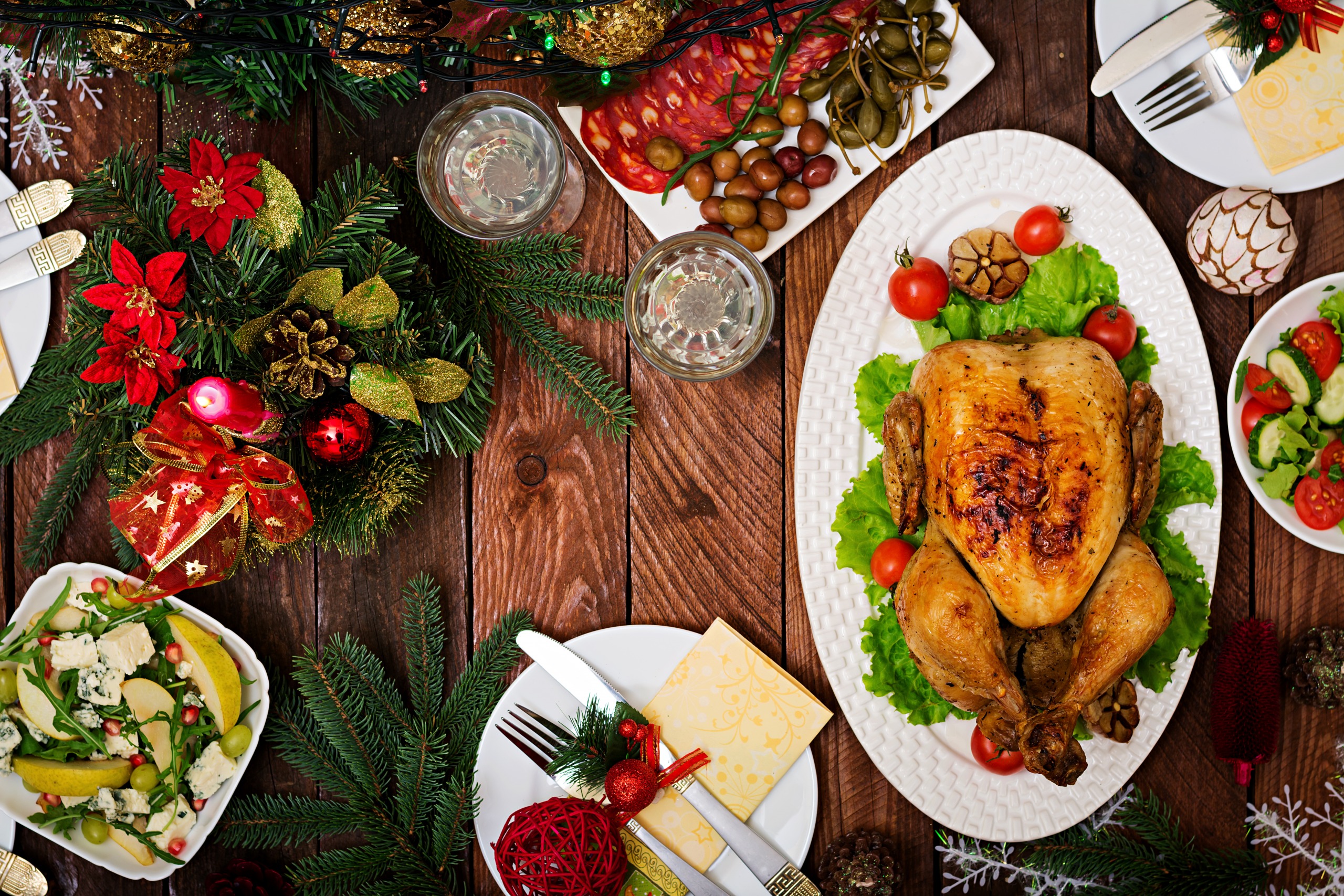The sounds of Christmas carols in the background, the laughter of your family and friends gathered around the table, warmth coming from the fireplace, mulled wine and the smell of the freshly baked goodies made especially for Christmas. It all makes for a perfectly cozy celebration that all of us enjoy wholeheartedly. Indeed, so cozy that we often forget to keep track of how much food we buy, cook and consume during this period. Unfortunately, food waste seems less important at the end of the year.
It is estimated that in the EU, from around 88 million tonnes of food waste created yearly, more than half is produced in households. (https://www.euronews.com/green/2021/12/23/food-waste-at-christmas-how-bad-is-it-and-what-can-you-do-about-it). Besides, the total food waste increases by a significant percentage by the end of the year, precisely because of the Christmas and New Year celebrations. (https://warrens-group.com/news/reducing-and-recycling-food-waste-during-the-festive-period/)
It is not to say that our favorite festive meals in December should be regulated so strictly that we don’t enjoy it anymore. Certainly not. However, there are small practices that we can include in our everyday life and slowly change our cooking and eating habits. This way, we could significantly impact the food waste issue and prevent a large amount of food from being thrown unnecessarily into landfills.
Despite producing enough food to feed the entire world, a big part of it never ends up on the plate. For this reason, the change must begin from the minds of educated and well-aware people who care about the environment and its wellbeing. The director of Food Waste in the WWF, Pete Pearson, clearly said: “When we throw away food, we’re also throwing away the land, water, and energy used to produce that food.” (https://www.worldwildlife.org/stories/how-to-reduce-food-waste-this-holiday-season)
Therefore, to save our precious land, water and energy, we can start making small but significant changes starting from today. Here we offer some of the steps that each of us could incorporate within our households.
- Stick with your shopping list.
We have all been there – we go to the supermarket to do the grocery shopping and, whether we realize it or not, the Christmas action prices seduce us with “amazing” offers that we “cannot refuse”.
This is a warm reminder that you don’t have to fall for this trap this year. You don’t want your food sitting in your storage, taking up your space and eventually going bad because you didn’t prepare it within the “best-before” date. Instead, count your guests, make a list and stick with it when you go to the supermarket.
- Prepare the food for the number of guests coming – not more, not less.
Many traditions, including mine, have this strong practice of making almost double the amount of food than the one necessary. Such practices stem back to history when it was humiliating for a host if their guest left the house hungry. Although now somewhat more refined, this subconscious belief runs within many modern households even to this day.
With all due respect to tradition, we think it is time to take what is good and leave out what turned out to be quite ineffective, especially environment-wise. In this case, overcooking is what we can safely let go, and start making “just-enough” food. Don’t worry – you will still feed everyone sitting at your table, and at the same time, you will participate in the food waste reduction.
- Pack the leftovers for the guests.
Of course, no matter how much we try to make just enough amount of food, there is always something left. The best thing about it is that we can enjoy the delicious food the next day and take a break from cooking. Simply take the food containers from your storage and divide the food so that every guest has a little bit of everything.
The same practice goes for restaurants too. Don’t feel ashamed to ask for a paper bag for your leftovers since more and more eateries are incorporating this positive approach towards the extra food.
- Make new recipes from the leftovers.
Celebration leftovers can be a perfect inspiration for new and unique recipes for those feeling creative in the kitchen. But, don´t worry, even if you´re not the creative one, you can always consult your friend Google and find an exciting food combo. Luckily, countless options and inventive recipe ideas are roaming around the internet. We are sure the entire family will welcome your new meal with a big appetite and a smile on their face.
- Use the freezer.
Freezers are a major help when combating the excess food within a household. Moreover, they are the most simple solution, since all you need to do is put the previously cooked food in a food container of your choice and write a date of freezing, so you know on which date you froze it.
If you organize your freezer well to know exactly what and when you’re freezing, you could save up a ton of time by heating up what you cooked some time ago. Freezers preserve the food perfectly, keeping it fresh the next time you decide to eat it.
- Donate to someone in need.
With so many people starving and not having a single cooked meal on their plates, donating the excess holiday food is a great option. All you need to do is contact the nearest shelter, orphanage, or even asylum for immigrants and tell them that you have the extra food for those in need. You can also reach out to any association or NGO connected to these shelters and follow their procedure for donations. Sharing the joy and keeping the high spirit in the holiday season through giving what you have is one of the most satisfying feelings you can get.
Now that we have given you a short overview of good practices feel free to be even more creative and think of your own ways to decrease the food waste in your home. Anything that can help tackle the enormous food losses we witness worldwide is a highly encouraging action in the name of our Mother Earth.
Nonetheless, we want to highlight that regardless of the positive impact these practices bring, they can seem overwhelming to some people who are just beginning this journey. So just remember, take one step at a time. Introduce the changes to your household gradually, and over time, you will start enjoying them, knowing that you are doing something good for the entire planet.


